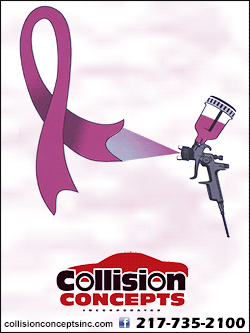|
 The two women have been friends for almost 40
years. In their personal lives though, from time to time the changes
they were going through caused the two to drift apart, but they come
back together, and Jane said they always seemed to pick up right
where they had left off. In recent years, the two were in their
drifted apart chapter of their lives, when they came back together
and it was a wonderful reunion for both of them. The two women have been friends for almost 40
years. In their personal lives though, from time to time the changes
they were going through caused the two to drift apart, but they come
back together, and Jane said they always seemed to pick up right
where they had left off. In recent years, the two were in their
drifted apart chapter of their lives, when they came back together
and it was a wonderful reunion for both of them.
As they began to talk about what they had been doing, where they had
been, and what had changed in their lives they came to realize that
in the time apart, both had battled breast cancer. Both had gone
through surgery, chemotherapy, and radiation. Jane recently talked
about that reunion and said that among the things they did to catch
up was show each other their battle scars.
Jane was the first to be diagnosed. She said that she found her
cancer in the mirror. She explained that she had undergone
gallbladder surgery and soon afterward noticed an oddity in her left
breast. It looked like there was something under the skin. She asked
her doctor at the time, and he more or less dismissed her concerns.
But she continued to watch and saw that whatever it was, it was
changing, growing, and moving.
She finally one day decided it was time to share, and she went to
her husband Gary and asked him to look at her breasts. He saw it
right away, and together they decided it was time to get some
medical advice.

Jane said she knew in her mind that it was going to be cancer. She
and Gary discussed it and decided that they weren’t going to say
anything to family until they had more definitive answers, but that
plan soon fell apart. Jane said as it happened, the day she went to
the doctor, her parents had an appointment at about the same time
Jane didn’t know about. Jane’s mother started questioning why Jane
and Gary were there, and Jane recalled, “I couldn’t lie to my mom.”
So her parents were in on Jane's diagnosis from the very early
stages. Jane recalled her mom, Shirley Singley, was very supportive,
and even though she was 73 years old insisted on driving Jane to her
treatments. Jane said it wasn’t really necessary, but it was
something that made Shirley feel like she was being proactive in her
daughter’s treatment, so off they went together for each of Jane’s
treatments.
Kathy’s cancer was found in December of 2001 with a mammogram, and
she began her treatments in 2002. Testing revealed she had a pea
sized tumor that was cancerous, but she also had cancer in one lymph
node. During surgery the tumor was removed along with ten lymph
nodes.
Jane's tumor was larger, the size of a golf ball. She said that her
surgery was called a lumpectomy, but by the time the tumor and
surrounding tissue had been removed, it was what she would call a
partial mastectomy. She said that her breast was deformed after the
surgery and remains deformed to this day because insurance said that
reconstructive surgery was not medically necessary and wouldn’t pay.
Kathy recalls that she struggled with the radiation. She said that
she didn’t know that because she was naturally a large breasted
woman that would play against her, impacting how her radiation was
delivered and how badly it burned. She said even though her cancer
was small, she suffered quite a bit with her treatment.
For Jane, chemotherapy was difficult. She said that she knew that
she would have her treatment on Friday and by Monday she would be
very sick. She said that was hard on her as a mom, because she felt
she wasn’t doing what she needed to do for her son Andrew. But, she
said the youngster was a rock for her, and very understanding.
She said knowing what that Monday would be like, she bought
microwavable breakfast foods for her son and he would get up, get
himself breakfast, get ready for school and did it without
complaint.
Both women also had strong support from their husbands. Jane said
that Gary helped her tremendously, helping her in the bath and
bathing her as well as washing her hair, while she had hair. Gary
worked but was there when needed, and he went with her on the last
day of her radiation.
Kathy said that her husband R.C. also took care of her and held her
up in the very tough times. She talked about the loss of her hair
during chemo and said it was R.C. who took the straight razor to her
head and shaved her when the hair started coming out.
Jane said she also lost her hair. That was something that bothered
her mother Shirley, who insisted that Jane would wear a wig. Jane
said she personally wasn’t in favor of going the wig route, but she
did purchase one for her mom’s sake. Then, she said on the first day
she put it on, she went outside and the wind sent it spinning on her
head. Jane said she pulled the wig off and said “enough of that!” In
the end, she said she really loved being bald. It was a sign of
battle and a message of hope when the hair began coming back.
[to top of second column] |
 Kathy was working at the Lincoln Developmental
Center during her cancer treatment. She said that as a nurse, she
spent time with the children, so she got “a little red wig” to wear
to work because she didn’t want to frighten the children with her
baldness.
Both women had struggles, and Kathy admits that in the time since
her treatment she works to block out some of the worst memories. She
said they do come back to her on days like this when she is talking
to someone expressly about her cancer, but otherwise she doesn’t
dwell on what she went through.
Both women also said that they felt like 18 and 20 years ago, the
doctors were less candid about the disease and the side effects of
treatment. They said some of the information that was lacking may
have been because they didn’t know what they know now, but other
information the women believe the doctors tried to withhold to help
reduce anxiety for their patients.
Jane noted that she was given a drug that was relatively new and not
all of the side effects were known. She noticed that her arm where
the drug was injected began developing tremors. She said the entire
arm would shake and jerk. She told her doctor about it and he said
he’d not heard of that happening before, and she told him, “Well,
write it down! It is a side effect!”

Jane carried with her a photo of herself. She said
that on her last day of treatment, Gary and Andrew went with her.
She hadn’t told her husband, but a road trip was in the works. When
they got done with treatment she told him they were going to the
Garden of the Gods at Shawnee National Forest. They drove down and
spent the weekend. Looking at the picture she said, “I climbed that
mountain. I had a hard time doing it, but by God, I did it!” With
her arms spread out, Jane looks over the vast scene in front of her
in the photo, a celebration of victory and a moment of thanksgiving.
She was a survivor!

So, 18 and 20 years later do the two friends worry about cancer
today? Not really, they say. The first five years after treatment
are the most crucial, but they are both still cautious. Both get
mammograms each year. Jane gets hers on her cancer anniversary date.
Jane said that the best message she can send to others is to be well
informed, then don’t back away from what lies ahead, “Get mad, and
say you are not going to take me!” Kathy agrees saying ‘once you
know, then you can fight.”
The women agree the battle is what lies ahead for those who are
diagnosed, and the attitude is what will drive you to success. They
say, be strong, but not afraid to lean on others when you feel weak.
Be informed, but don’t dwell on the negative. Let those who love you
support you and don’t imagine that you are in the battle alone.
And, for those of you who are on the outside looking in at a loved
one with cancer, Kathy says don’t be afraid to step up. Don’t back
away. Give a hug when you can and show the cancer patient that you
care.
As the two friends talked about their cancer it was clear that they
have been through a lot and came out on the other side better for
it. Since their cancer, both have lost their husbands. Kathy’s two
sons live on opposite sides of the country and Jane’s son Andrew is
an adult. The two have re-connected and their friendship is stronger
than ever. Jane says “we are sister-friends,” who even in the years
they were separated still held each other in the heart like sisters.
Both are grateful to be survivors, and are grateful to have found
each other again. As they compare their stories, and laugh about the
funny things that have happened, they also share tears over sad
moments, and hold each other up in times of weakness.
So yes, sister-friends is a good description of the two, but we
would also add they are 'survivor-sisters!'
Thank you Jane and Kathy for sharing your stories.
[Nila Smith] |